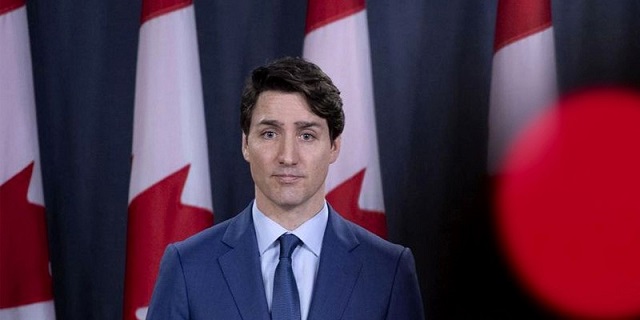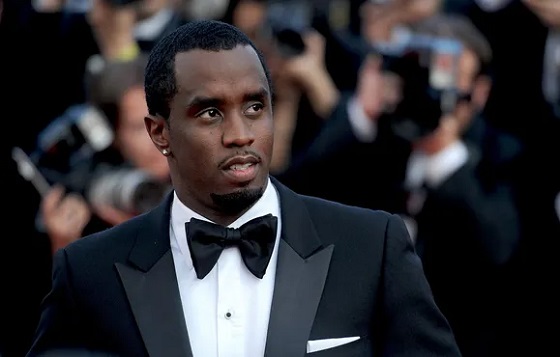Business
Federal government ratchets up ‘climate’ propaganda

From the Fraser Institute
In the face of resistance from provinces to its anti-fossil fuel agenda, and having endured several setbacks in the federal courts over some of its signature environmental policies, the Trudeau government has rolled out a new propaganda campaign to build greater support for its climate and energy policies.
According to the government’s new “Raising the Bar” campaign, manmade climate change has quickly evolved from a future threat to a real-time crisis where we’re experiencing more “wildfires, floods, and droughts” that affect “our economy, our infrastructure, our health, and our overall well-being.”
But is this true? Our government, which regularly claims to follow evidence-based policy, doesn’t provide much evidence to back up these claims—probably because there isn’t a lot of strong evidence that we’re seeing dramatic changes in extreme weather events.
Take wildfires, for example. In reality, wildfires in Canada have been declining in number, extent and severity over the last four decades, even as the overall climate has warmed (which it has, undeniably). More broadly, according to the United Nations Intergovernmental Panel on Climate Change (IPCC), it’s only “likely” that heavy rainfall events have increased in North America since 1950, and the IPCC only has “medium confidence” that droughts have worsened since 1950.
Nonetheless, despite a relative paucity of data indicating worsening extreme weather events in Canada, we must “Raise the Bar” and “tackle the climate crisis” by essentially doing less of just about everything Canadians want to do.
The Trudeau government’s new campaign includes a slick video showing how Canadians are “Stepping Up” to the government’s ideas of the good life. We meet Charles, who now takes the bus twice a week, and Megan, who swapped her trusty gas-powered leaf blower for an electric one. Jade and Amina have taken government subsidies to swap out their reliable gas heating system for an electric heat pump. And the Nguyen family now dries its clothes on clotheslines. Of course, the video does not reveal that some of these virtuous acts will be fairly horrible in the cold winters that grip most of the country. One wonders how many tax dollars went to fund this little paean to Canadians who follow government dictates. (Interestingly, when the government posted the video on YouTube, it disabled the comments so Canadians can’t, well, comment.)
But the propaganda doesn’t stop with gentle nudging. On the website, Canadians are told to use less energy, less water, buy less new clothing, travel less, and eat less meat while eating more plant matter (ironically, the government’s efforts to reduce nitrogen fertilizer will make plant matter more expensive and less available).
One might dismiss the latest climate propaganda campaign as just another government Public Service Announcement intended to help people live more climate-healthy and mindful lives, but that would be a mistake. Because this propaganda campaign doesn’t simply encourage people to get more exercise or eat less junk food, it seeks to create a public mindset that will convince Canadians to accept a raft of coercive regulations—such as the hard cap on greenhouse gas emissions or restrictions on fuel tankers and pipelines—which prevent the development of oil and gas resources across Western Canada and restrict the economy.
Rather than making our lives better, as the “Stepping Up” video suggests, the coercive regulatory regime that underpins these new ways of living will, in fact, leave Canadians less prosperous and force them to pay more for less of just about everything.
Author:
armed forces
Canada’s Military Can’t Be Fixed With Cash Alone

From the Frontier Centre for Public Policy
By Lt. Gen. (Ret.) Michel Maisonneuve
Canada’s military is broken, and unless Ottawa backs its spending with real reform, we’re just playing politics with national security
Prime Minister Mark Carney’s surprise pledge to meet NATO’s defence spending target is long overdue, but without real reform, leadership and a shift away from bureaucracy and social experimentation, it risks falling short of what the moment demands.
Canada committed in 2014 to spend two per cent of its gross national product on defence—a NATO target meant to ensure collective security and more equitable burden-sharing. We never made it past 1.37 per cent, drawing criticism from allies and, in my view, breaching our obligation. Now, the prime minister says we’ll hit the target by the end of fiscal year 2025-26. That’s welcome news, but it comes with serious challenges.
Reaching the two per cent was always possible. It just required political courage. The announced $9 billion in new defence spending shows intent, and Carney’s remarks about protecting Canadians are encouraging. But the reality is our military readiness is at a breaking point. With global instability rising—including conflicts in Ukraine and the Middle East—Canada’s ability to defend its territory or contribute meaningfully to NATO is under scrutiny. Less than half of our army vehicles, ships and aircraft are currently operational.
I’m told the Treasury Board has already approved the new funds, making this more than just political spin. Much of the money appears to be going where it’s most needed: personnel. Pay and benefit increases for serving members should help with retention, and bonuses for re-enlistment are reportedly being considered. Recruiting and civilian staffing will also get a boost, though I question adding more to an already bloated public service. Reserves and cadet programs weren’t mentioned but they also need attention.
Equipment upgrades are just as urgent. A new procurement agency is planned, overseen by a secretary of state—hopefully with members in uniform involved. In the meantime, accelerating existing projects is a good way to ensure the money flows quickly. Restocking ammunition is a priority. Buying Canadian and diversifying suppliers makes sense. The Business Council of Canada has signalled its support for a national defence industrial strategy. That’s encouraging, but none of it will matter without follow-through.
Infrastructure is also in dire shape. Bases, housing, training facilities and armouries are in disrepair. Rebuilding these will not only help operations but also improve recruitment and retention. So will improved training, including more sea days, flying hours and field operations.
All of this looks promising on paper, but if the Department of National Defence can’t spend funds effectively, it won’t matter. Around $1 billion a year typically lapses due to missing project staff and excessive bureaucracy. As one colleague warned, “implementation [of the program] … must occur as a whole-of-government activity, with trust-based partnerships across industry and academe, or else it will fail.”
The defence budget also remains discretionary. Unlike health transfers or old age security, which are legally entrenched, defence funding can be cut at will. That creates instability for military suppliers and risks turning long-term procurement into a political football. The new funds must be protected from short-term fiscal pressure and partisan meddling.
One more concern: culture. If Canada is serious about rebuilding its military, we must move past performative diversity policies and return to a warrior ethos. That means recruiting the best men and women based on merit, instilling discipline and honour, and giving them the tools to fight and, if necessary, make the ultimate sacrifice. The military must reflect Canadian values, but it is not a place for social experimentation or reduced standards.
Finally, the announcement came without a federal budget or fiscal roadmap. Canada’s deficits continue to grow. Taxpayers deserve transparency. What trade-offs will be required to fund this? If this plan is just a last-minute attempt to appease U.S. President Donald Trump ahead of the G7 or our NATO allies at next month’s summit, it won’t stand the test of time.
Canada has the resources, talent and standing to be a serious middle power. But only action—not announcements—will prove whether we truly intend to be one.
The NATO summit is over, and Canada was barely at the table. With global threats rising, Lt. Gen. (Ret.) Michel Maisonneuve joins David Leis to ask: How do we rebuild our national defence—and why does it matter to every Canadian? Because this isn’t just about security. It’s about our economy, our identity, and whether Canada remains sovereign—or becomes the 51st state.
Michel Maisonneuve is a retired lieutenant-general who served 45 years in uniform. He is a senior fellow at the Frontier Centre for Public Policy and author of In Defence of Canada: Reflections of a Patriot (2024).
Business
Canada’s loyalty to globalism is bleeding our economy dry

This article supplied by Troy Media.
Trump’s controversial trade policies are delivering results. Canada keeps playing by global rules and losing
U.S. President Donald Trump’s brash trade agenda, though widely condemned, is delivering short-term economic results for the U.S. It’s also revealing the high cost of Canada’s blind loyalty to globalism.
While our leaders scold Trump and posture on the world stage, our economy is faltering, especially in sectors like food and farming, which have been sacrificed to international agendas that don’t serve Canadian interests.
The uncomfortable truth is that Trump’s unapologetic nationalism is working. Canada needs to take note.
Despite near-universal criticism, the U.S. economy is outperforming expectations. The Federal Reserve Bank of Atlanta projects 3.8 per cent second-quarter GDP growth.
Inflation remains tame, job creation is ahead of forecasts, and the trade deficit is shrinking fast, cut nearly in half. These results suggest that, at least in the short term, Trump’s economic nationalism is doing more than just stirring headlines.
Canada, by contrast, is slipping behind. The economy is contracting, manufacturing is under pressure from shifting U.S. trade priorities, and food
inflation is running higher than general inflation. One of our most essential sectors—agriculture and food production—is being squeezed by rising costs, policy burdens and vanishing market access. The contrast with the U.S. is striking and damning.
Worse, Canada had been pushed to the periphery. The Trump administration had paused trade negotiations with Ottawa over Canada’s proposed digital services tax. Talks have since resumed after Ottawa backed away from implementing it, but the episode underscored how little strategic value
Washington currently places on its relationship with Canada, especially under a Carney-led government more focused on courting Europe than securing stable access to our largest export market. But Europe, with its own protectionist agricultural policies and slower growth, is no substitute for the scale and proximity of the U.S. market. This drift has real consequences, particularly for
Canadian farmers and food producers.
The problem isn’t a trade war; it’s a global realignment. And while Canada clings to old assumptions, Trump is redrawing the map. He’s pulling back from institutions like the World Health Organization, threatening to sever ties with NATO, and defunding UN agencies like the Food and Agriculture Organization (FAO), the global body responsible for coordinating efforts to improve food security and support agricultural development worldwide. The message is blunt: global institutions will no longer enjoy U.S. support without measurable benefit.
To some, this sounds reckless. But it’s forcing accountability. A senior FAO official recently admitted that donors are now asking hard questions: why fund these agencies at all? What do they deliver at home? That scrutiny is spreading. Countries are quietly realigning their own policies in response, reconsidering the cost-benefit of multilateralism. It’s a shift long in the making and long resisted in Canada.
Nowhere is this resistance more damaging than in agriculture. Canada’s food producers have become casualties of global climate symbolism. The carbon tax, pushed in the name of international leadership, penalizes food producers for feeding people. Policies that should support the food and farming sector instead frame it as a problem. This is globalism at work: a one-size-fits-all policy that punishes the local for the sake of the international.
Trump’s rhetoric may be provocative, but his core point stands: national interest matters. Countries have different economic structures, priorities and vulnerabilities.
Pretending that a uniform global policy can serve them all equally is not just naïve, it’s harmful. America First may grate on Canadian ears, but it reflects a reality: effective policy begins at home.
Canada doesn’t need to mimic Trump. But we do need to wake up. The globalist consensus we’ve followed for decades is eroding. Multilateralism is no longer a guarantee of prosperity, especially for sectors like food and farming. We must stop anchoring ourselves to frameworks we can’t influence and start defining what works for Canadians: secure trade access, competitive food production, and policy that recognizes agriculture not as a liability but as a national asset.
If this moment of disruption spurs us to rethink how we balance international cooperation with domestic priorities, we’ll emerge stronger. But if we continue down our current path, governed by symbolism, not strategy, we’ll have no one to blame for our decline but ourselves.
Dr. Sylvain Charlebois is a Canadian professor and researcher in food distribution and policy. He is senior director of the Agri-Food Analytics Lab at Dalhousie University and co-host of The Food Professor Podcast. He is frequently cited in the media for his insights on food prices, agricultural trends, and the global food supply chain
Troy Media empowers Canadian community news outlets by providing independent, insightful analysis and commentary. Our mission is to support local media in helping Canadians stay informed and engaged by delivering reliable content that strengthens community connections and deepens understanding across the country
-

 Alberta2 days ago
Alberta2 days agoAlberta Provincial Police – New chief of Independent Agency Police Service
-

 COVID-192 days ago
COVID-192 days agoTop COVID doctor given one of Canada’s highest honors
-

 Opinion2 days ago
Opinion2 days agoBlind to the Left: Canada’s Counter-Extremism Failure Leaves Neo-Marxist and Islamist Threats Unchecked
-

 Banks2 days ago
Banks2 days agoWelcome Back, Wells Fargo!
-

 MxM News1 day ago
MxM News1 day agoDiddy found not guilty of trafficking, faces prison on lesser charge
-

 Alberta1 day ago
Alberta1 day agoAlberta government records $8.3 billion surplus—but the good times may soon end
-

 International2 days ago
International2 days agoWoman wins settlement after YMCA banned her for complaining about man in girls’ locker room
-

 Bruce Dowbiggin1 day ago
Bruce Dowbiggin1 day agoCanada Day 2025: It’s Time For Boomers To Let The Kids Lead








